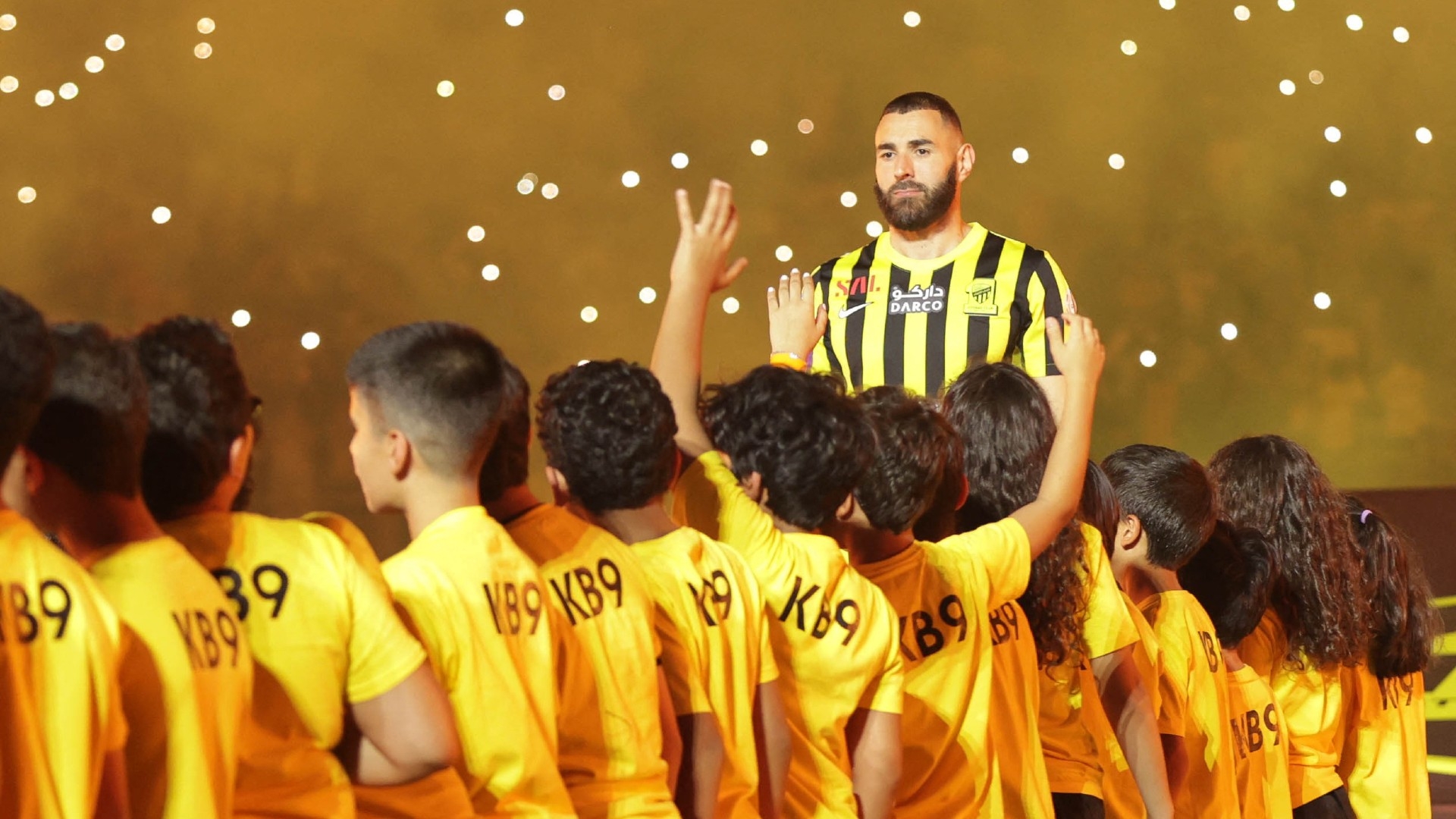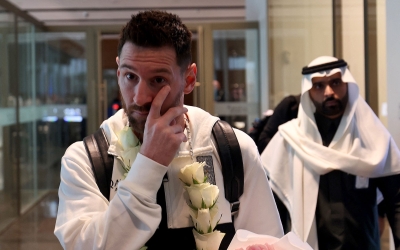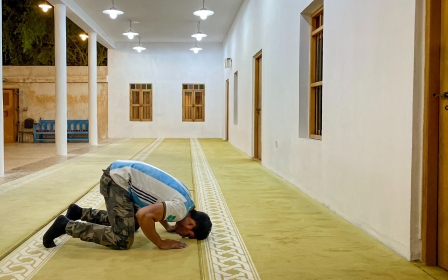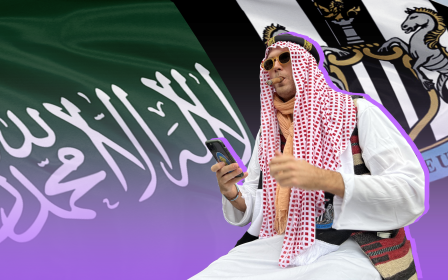Faith and fortune: Why are footballers going to Saudi Arabia?

Football is sometimes compared to religion, but it's not often that theology plays a key part in lucrative transfers at the top level of the sport.
Yet that was apparently part of the case for Karim Benzema, the current holder of the Ballon d’Or, football’s highest individual prize, who last week completed a move to Saudi Arabia’s Al-Ittihad.
The Frenchman was the first major star to transfer to the Gulf country this summer - following in the footsteps of his former Real Madrid teammate Cristiano Ronaldo.
The move came amid a recent wave of transfer rumours linking high-profile players to teams in the Saudi Pro League and an injection of funding from the kingdom's Public Investment Fund.
Huge salaries are obviously a big part of the attraction, but, for some like Benzema, religion is playing a part too.
New MEE newsletter: Jerusalem Dispatch
Sign up to get the latest insights and analysis on Israel-Palestine, alongside Turkey Unpacked and other MEE newsletters
During his official unveiling press conference, when asked why he chose the Gulf kingdom, Benzema said: “Well because I am Muslim and it’s a Muslim country. I’ve always wanted to live there.”
He said that his family was excited to move to Saudi Arabia, home to Islam’s two holiest sites in Mecca and Medina, and that he had already performed the Umrah religious pilgrimage in the country twice.
“[The move] will allow me to have a new life. I would like to learn Arabic and speak fluently,” Benzema, who is of Algerian heritage, added. “I’ve already been to Saudi Arabia, Mecca is very close and as a believer it’s important for me. This is where I will feel at my best and in my element.”
Muslim country 'attractive'
Benzema leaves Real Madrid in Spain having won 24 trophies, including a joint-record five Champions League titles, as the second-highest scorer in the club's history (behind Ronaldo).
Another highly decorated French superstar, N’Golo Kante, will join his countryman Benzema at Al-Ittihad. He also regularly fasts during the month of Ramadan and has also completed Umrah.
Other Muslim footballers, such as Manchester City’s Riyad Mahrez, Chelsea’s Hakim Ziyech and Sevilla’s Yassine Bounou have also been linked to moves to the kingdom.
'For some Muslim players approaching the twilight of their careers, the opportunity to experience and live in a Muslim nation is an attraction'
- Mostafa Mohamed, journalist
“For some Muslim players approaching the twilight of their careers, and maybe with young families who move around with them, the opportunity to experience and live in a Muslim nation is an attraction,” Mostafa Mohamed, an Egyptian journalist writing on sports and economics, told Middle East Eye.
He said that Benzema’s decision to highlight the importance of his faith, “plays well with the audience in their new host country and region, as well as particular fans back in Europe.”
The World Cup in Qatar last year, the first in a Muslim country, was hailed by Muslim fans as a blueprint for the highest level of the game being played in an environment with ample space for prayer, low levels of alcohol, and Islamic history and culture on full display.
But aside from faith, there are many other factors at play too, Mohamed stressed.
“Ultimately, just like their non-Muslim peers, footballers are naturally competitive and want to play at the highest level, with the best players and for the most money possible.”
Abdullah al-Arian, author of Football in the Middle East: State, Society and the Beautiful Game, believes the role of faith is secondary.
“Certainly, players like Karim Benzema and N'Golo Kante may find the transition to Saudi Arabia easier given the religious and cultural ties it offers, but I would not expect this to be a significant factor in recruiting global talent,” he told Middle East Eye.
“What matters ultimately is bringing top-level talent and globally recognised players who have left their mark on the sport in the world's top competitions.”
'Unprecedented salaries'
Benzema will reportedly earn a whopping $200m a year, a similar figure to Ronaldo, while Kante will be paid around $107m annually.
For many players, money will be the key component, with European clubs unable to compete with staggering Saudi sums.
“The Saudi league is offering unprecedented salary packages to players who still theoretically have some years left of playing at the top level,” said al-Arian.
“In doing so, it aims to prise them away from their current clubs some years before such a move would have been considered a ‘natural’ final chapter of their storied careers.”
The Saudis are not the first to attempt to use huge salaries to attract players away from Europe’s top five leagues (in England, Spain, Germany, Italy and France), but their efforts appear to be on a new scale.
“What is happening now in Saudi Arabia is different and unprecedented,” said Mohamed.
“The level of investment is in a completely different order of magnitude and with the backing of the Saudi regime this shake-up will be more sustained than previous high-profile player acquisitions in China, Russia or the US.”
He alludes to the fact that Saudi Arabia’s Public Investment Fund (PIF) recently acquired majority shares in the league’s top four clubs, Al-Nassr, Al-Hilal, Al-Ittihad and Al-Ahli.
The sovereign wealth fund, which already owns English football team Newcastle United, last week became the major investor in a controversial newly-merged golf tour.
Its financing of sports teams and events forms part of Saudi Arabia’s Vision 2030 strategy to diversify the economy away from oil reliance.
'Competitive balance'
In recent days, PIF officials have actively been involved in negotiations with footballers interested in a Saudi transfer, often on behalf of more than one club.
“By centralising control over the most important clubs, the PIF can oversee the billions of newly invested dollars,” said Arian.
“[It can] coordinate the distribution of superstar players across the different teams and maximise the competitive balance in a way that suits the league's needs as it challenges the hegemony of Europe's elite competitions.”
For footballers arriving from Europe, that competitiveness and sense of rivalry between teams may make the Saudi Pro League more attractive than other leagues known for paying big salaries, but without much in the way of a footballing culture.
'The Saudi league is offering unprecedented salary packages to players who still theoretically have some years left of playing at the top level'
- Abdullah al-Arian, author
Long before the arrival of global superstars, Saudi Arabia has been obsessed with football, with famed rivalries such as that between Al-Nassr and Al-Hilal. Its teams are also highly successful on the continent.
“The Saudi Pro League is actually very competitive and relatively well established in the region,” said Mohamed. “It ranks highly amongst the leagues in Asia, probably only behind… Japan and South Korea.”
Al-Hilal has won more Asian Champions League titles than any other club, while the Saudi national team has made the World Cup six times - pulling off a memorable win over eventual winners Argentina last year.
The hugely lucrative contracts for international stars are, in fact, a pivot for the most-watched sport in Saudi Arabia.
“In some ways, this signals a major shift for Saudi football,” said Arian.
“[It] has a rich and vibrant history whose growth has developed steadily in large part through investment in domestic talent and growing the fanbase through an emphasis on community-based clubs.”
This article is available in French on Middle East Eye French edition.
Middle East Eye delivers independent and unrivalled coverage and analysis of the Middle East, North Africa and beyond. To learn more about republishing this content and the associated fees, please fill out this form. More about MEE can be found here.





